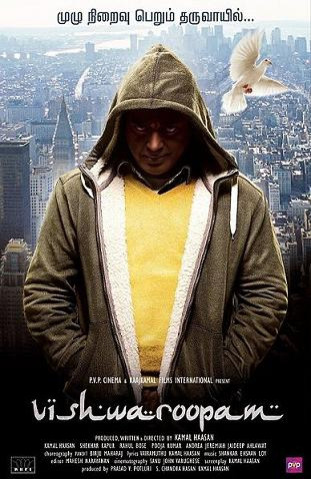India’s Tamil Nadu State Bans Kamal Haasan Movie Vishwaroopam: ‘Cultural Terrorism’ To Blame?

India’s southern state of Tamil Nadu has imposed a two weeks ban on the screening of a new big-budget multi-starrer movie following protests from Muslim organizations.
The spy-thriller, “Vishwaroopam,” dubbed the magnum opus of its creator Kamal Haasan, an award-winning actor, screenwriter, producer and director, has drawn protests over the alleged depiction of the Muslims in a negative light.
The Tamil Nadu government suspended the screening of the movie hours after about 20 Muslim groups had petitioned the government seeking a ban.
Apparently, the government imposed the ban citing "law and order" reasons. This ban gains significance as it was only in September last year, the U.S. Consulate in Chennai (Tamil Nadu’s capital city) was attacked by some 2,000 people led by a political outfit, the Tamil Nadu Muslim Munnetra Kazhagam (TMMK), in response to an anti-Islamic movie made in the U.S. that evoked massive waves of protests among Muslim communities across the world.
The following month, a big-budget release “Thuppakki” starring actor Vijay drew protests from Muslim groups which alleged that the movie hurt their religious sentiments. However, the movie was released after its producer, director and Vijay’s father met with Tamil Nadu TMMK leaders for negotiations.
Annoucing that he will take legal recourse against the ban, Haasan said he was “appalled” how his film was “construed against Muslim brothers,” adding that the circumstances leading to the ban were akin to “cultural terrorism.”
“I am not only hurt by these accusations of denigrating a community but my sensibilities are truly insulted,” Haasan said in a statement.
"I have been ruthlessly used as a vehicle by small groups who seek political profile. Icon bashing is a great way to be noticed when you are not one yourself. It is happening again and again," he said.
"My statements in favor of that community have marked me as a sympathizer. I have always gone beyond the call of my duty as an actor to voice my opinion in favor of what was humane and civil. I have been part of an organization called Harmony India which works for Hindu Muslim amity," he said.
The actor has moved the Madras High Court seeking lifting of the ban.
Mohammed Haneefa of the Federation of Islamic Movements and Political Parties said the release of the film even with deleted scenes or changes would affect the social harmony and all-round peace in the state, the Press Trust of India reported.
The film, which has Tamil, Hindi and Telugu versions, was scheduled to be released Friday, Jan.25, in some 500 theatres across the nation.
The ban, if not lifted before the scheduled release, is likely to create a significant dent on the movie’s finances, as the Tamil language movies recover their production cost mostly from the theatrical release.
This is the fourth time the state has banned the screening of a movie, with the first ban being imposed on “Oru Oru Gramathile” way back in 1987.
Hollywood movie “The Da Vinci Code” was banned in 2006, followed by a ban in 2011 on “Dam 999,” which favored neighboring state Kerala on the Mullaperiyar dam dispute.
Booker prize-winning Indian author Salman Rushdie, whose controversial book “Satanic Verses” elicited an import ban in India in 1988, Thursday said he was deeply worried about the repeated attacks on creative freedom in his country.
“This is a different kind of emergency, it's a cultural emergency in India. Culture is the new target and artists do not have gangs to defend themselves. Culture and art is not hard to attack," Rushdie told CNN-IBN in an interview.
Among those who sounded their support for Haasan were Bollywood moviemaker Anurag Kashyap who tweeted: “How can anyone decide what the film is about without seeing it? And how can the government pander to such groups?”
Actor Manoj Bajpayee said the ban was “disappointing” given that the film had won the approval of India’s Central Board of Film Certification which regulates the public exhibition of films.
© Copyright IBTimes 2024. All rights reserved.






















